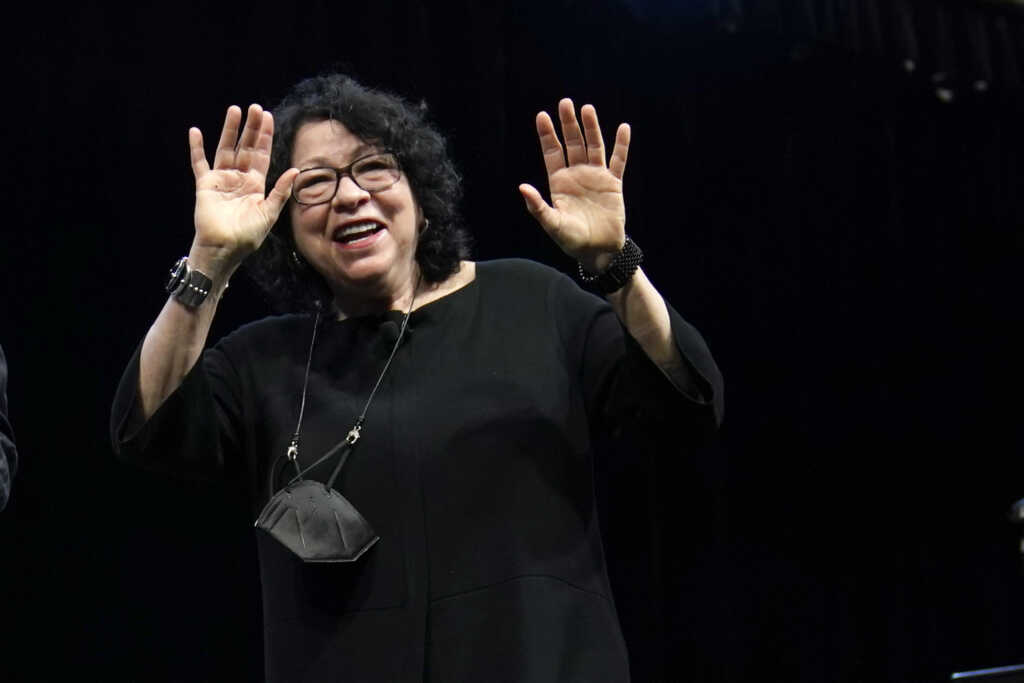The U.S. Supreme Court issued a crucial 6-3 ruling Tuesday favoring religious liberty and educational freedom. The court found that a Maine school tuition program discriminated against faith-based schools and impeded the free exercise of religion.
Listen to CBN News’ brand new morning podcast, Quick Start 👇
Conservatives heralded the decision, but liberal Justice Sonia Sotomayor took a staunchly divergent view, warning in her dissent of the supposed obliteration of the “wall of separation between church and state.”
Before exploring Sotomayor’s response, let’s first review the parameters of the Carson v. Makin case. The dispute centered on a state education policy for rural areas in Maine in which there aren’t nearby public school districts available to students.
“Many school districts in Maine are too rural to maintain their own public school,” Lea Patterson, an attorney with First Liberty Institute, a religious liberty law firm, told CBN’s Faithwire. “For those families who live there, the state will pay tuition up to a certain amount to the public or private school of the parent’s choice — unless the school they choose is religious.”
This religious preclusion stemmed from a law passed in 1980 that cut faith-based schools from the program — the very move the Supreme Court struck down as unconstitutional in Tuesday’s ruling.
Watch Patterson break down the case and respond to Sotomayor’s take:
While the conservative majority ruled in favor of religious freedom protections in the Carson v. Makin case, Sotomayor warned in her dissent that the high court has “upended constitutional doctrine.”
“This court continues to dismantle the wall of separation between church and state that the framers fought to build,” she wrote in her dissent. “In just a few years, the court has upended constitutional doctrine, shifting from a rule that permits states to decline to fund religious organizations to one that requires states in many circumstances to subsidize religious indoctrination with taxpayer dollars.”
While Sotomayor took this position, Patterson, whose firm brought the case before the court, dispelled these claims and offered a counternarrative.
“The wall of separation that she’s arguing for, as I believe she seems to understand it, actually amounts to religious hostility,” Patterson said. “The Constitution is designed to protect people’s ability to exercise their faith, free of state interference, free of penalty from the state.”
She continued, “And that’s what’s going on here, as the Supreme Court held that this was penalizing people because of their faith — because they sent their children to religious schools.”
Patterson said the state certainly isn’t implored to have a tuition-assistance program and isn’t required to send money to schools outside the public square. The problem arises, she said, when the government does decide to open the doors to funding private schools and then actively cuts out religious institutions.
“It cannot exclude religious schools from that pool,” Patterson said.
The attorney explained that Maine, for decades, had included religious schools in the tuition program, which began in the early 1900s. But the situation changed after the 1980 law purporting that religious school participation violated the establishment clause.
“When a state has a general tuition aid program where the parents are choosing where the money goes, it’s not a violation of the establishment clause for a state to send the money wherever the parents choose,” Patterson said. “What the Supreme Court did is … reiterate [that].”
She also addressed broader First Amendment battles that have dominated headlines in recent years, specifically cases that surround religious symbols on public property. First Liberty secured another high court win in 2019, when justices ruled in The American Legion v. American Humanist Association case that religious symbols can be used in public.
“One of the points that the court made in that case is that it is not neutral for government to roam the land tearing down religious objects because they’re on state property,” Patterson said. “That exhibits religious hostility, and we have a rich culture of many faiths in the United States, and the Constitution is designed to foster that, not to enforce neutrality … [and] religious silence.”
In the end, Patterson said the Carson v. Makin case is monumentally important due to the impact it will have on the overall arguments often made against faith in the public square.
“In a more general sense, this takes away one of the last arguments that could be made to exclude religious people from generally available benefit programs,” she said. “So, really, what this does is make sure that religious people are treated fairly.”
***As the number of voices facing big-tech censorship continues to grow, please sign up for Faithwire’s daily newsletter and download the CBN News app, developed by our parent company, to stay up-to-date with the latest news from a distinctly Christian perspective.***



